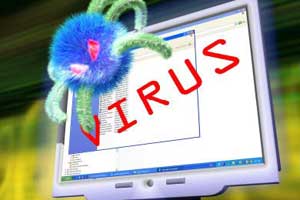NEW DELHI: Unknown hackers hacked the internet account of the Indian ambassador to Uzbekistan and sent virus-attached emails to some officials of the home ministry, sending the security establishment in a tizzy.
The “malicious” email contains a dangerous malware, Trojan, which allows the hacker remote access to the user’s computer system, according to sources.
 Investigators suspect that hackers in a “foreign” country have cracked the email ID of the ambassador and used his account to send the virus.
Investigators suspect that hackers in a “foreign” country have cracked the email ID of the ambassador and used his account to send the virus.
The Intelligence Bureau (IB), according to officials, has warned home ministry officials against opening such email that asks a user to run or install an unknown programme making the computer accessible to hackers.
“The Intelligence Bureau has intimated that a number of senior officers in the ministry have received a malicious mail from the email ID containing a Trojan concealed inside a sham list of some Indian terrorists,” said a source, quoting an IB circular.
The virus — used for data theft, downloading or uploading of files on the user’s computer and even keystroke logging — has attacked the computers even as the government’s IT arm National Informatics Centre (NIC) had installed one of the latest antivirus softwares in the official computers.
The officials maintained that there was no sensitive information stored in the computers attacked but still the IB has ordered certain procedures to minimize the damage.
They have advised that all computers in the North Block should be regularly updated with latest antivirus software applications. Besides, no sensitive document should be stored in computers connected to the internet.
“There is proper control over the use of computer storage media (CSM),” the circular says, adding if a pen drive is used in standalone and internet computers, “all precautions should be taken to ensure that the drive is treated (scanned) with antivirus software and there is no hidden folder.”


